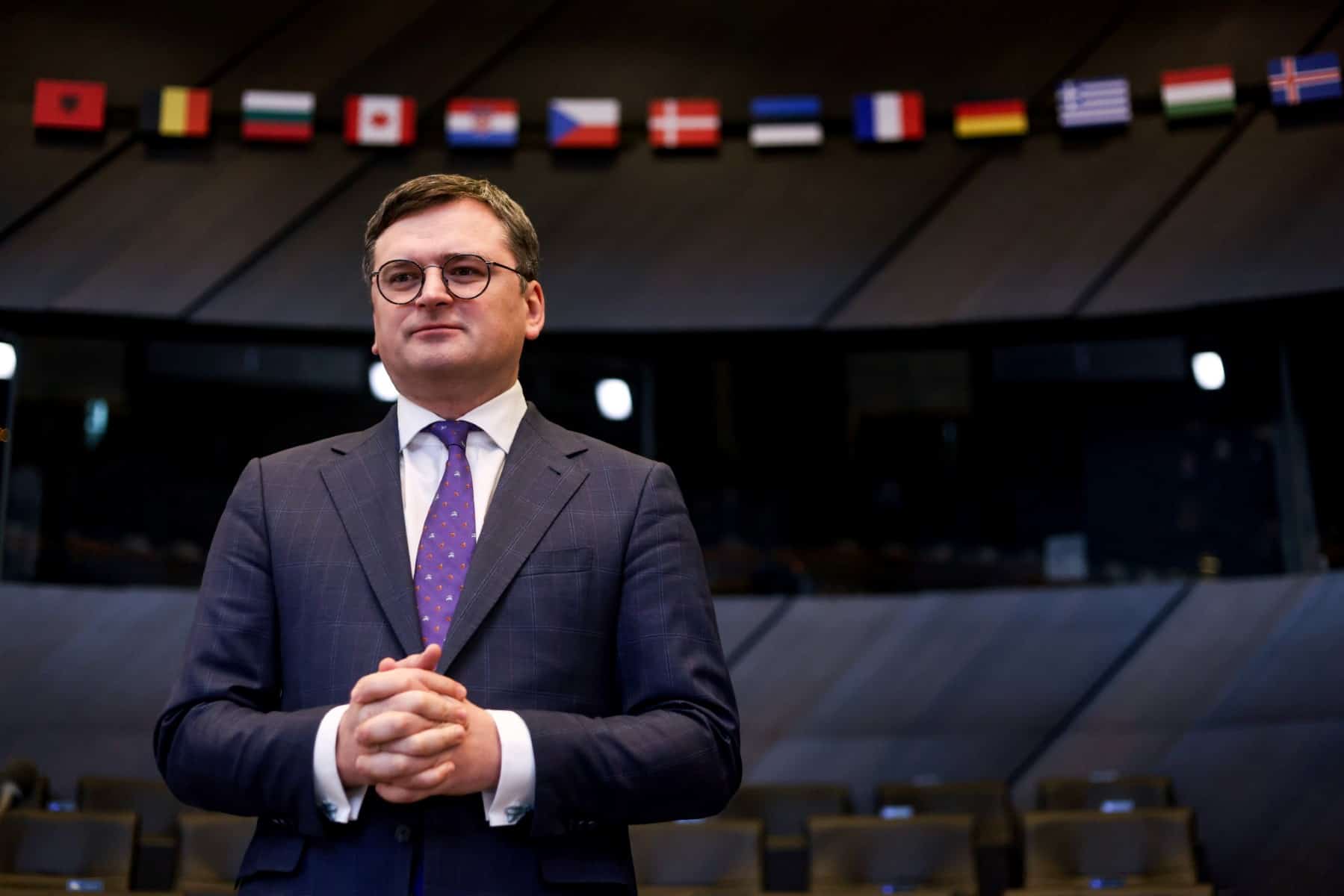Baghdad, Iraq – Ukraine’s Foreign Minister Dmytro Kuleba is expected in Baghdad on Monday on his first visit to Iraq since Russia invaded his country, the foreign ministry said.
Kuleba is due to hold talks with Iraqi Foreign Minister Fuad Hussein as well as Prime Minister Mohamed Shia al-Sudani, the ministry said in a statement on Sunday.
They will discuss “bolstering bilateral ties, as well as regional and international” issues, said the statement quoting foreign ministry spokesman Ahmed al-Sahhaf.
Kuleba’s visit comes less than a week after Sudani received a phone call from Ukrainian President Volodymyr Zelensky.
At the time, Zelensky said he was “keen to develop relations with Iraq in all fields” describing it as “a pivotal and influential country”, according to a statement from Sudani’s office.
Iraq maintains good economic ties with both Kiev and Moscow, and has adopted a neutral stance since Russia invaded Ukraine in February 2022.
In February this year, the Iraqi foreign minister reiterated Baghdad’s support for a ceasefire and negotiations to end the war in Ukraine, during a visit to Baghdad by his Russian counterpart Sergei Lavrov.
Iraq has hosted a raft of foreign officials in recent months and witnessed intense diplomatic activity, including several rounds of reconciliation talks between Iran and Saudi Arabia.
In March, the regional heavyweights made a surprise announcement saying they had agreed to restore diplomatic ties in a deal brokered by China.
Riyadh cut ties with Tehran after Iranian protesters attacked Saudi diplomatic missions in the Islamic republic in 2016 following the Saudi execution of revered Shiite cleric Nimr al-Nimr.

